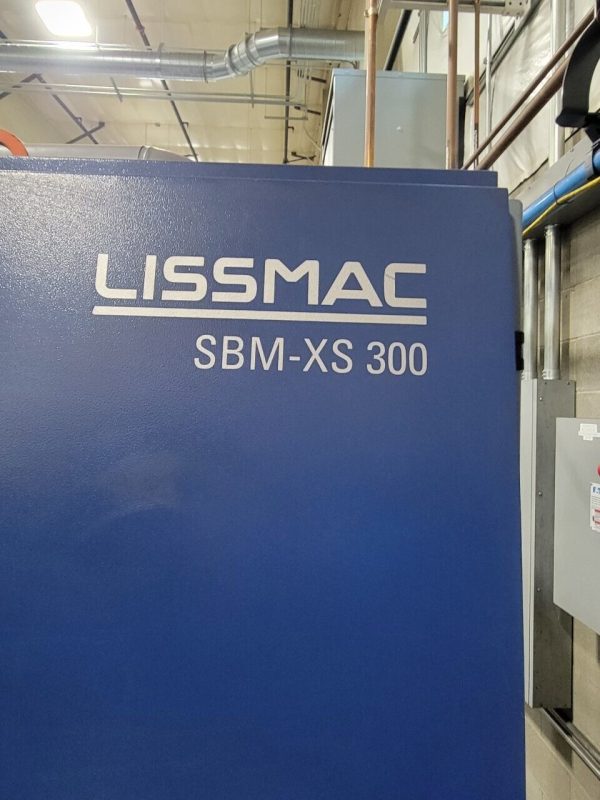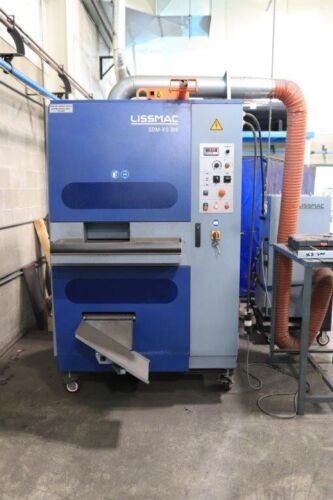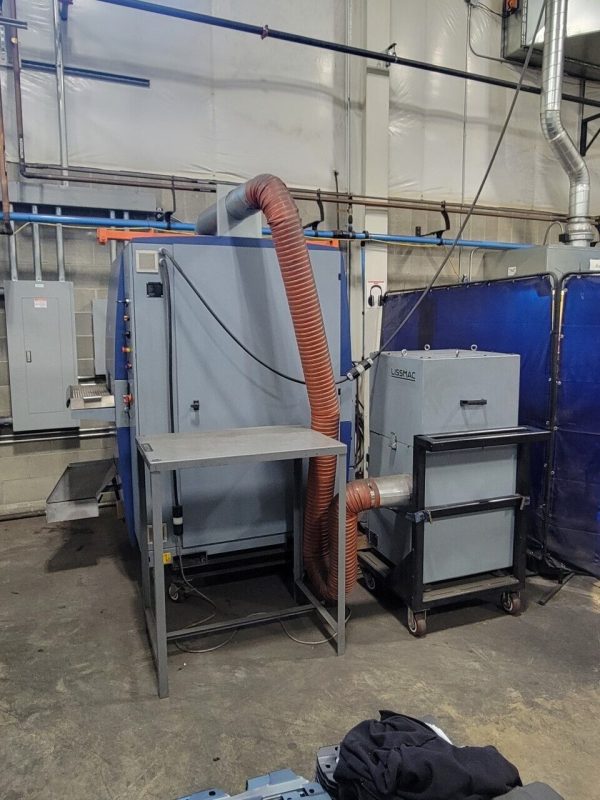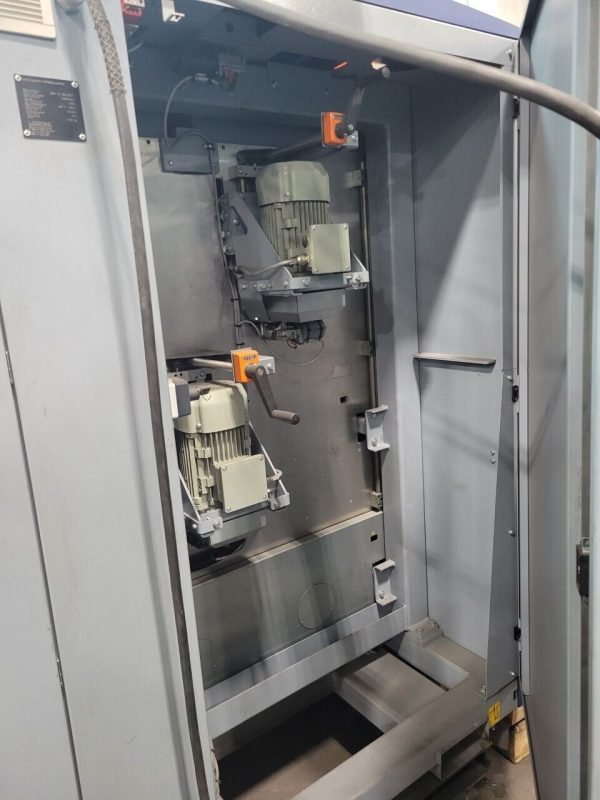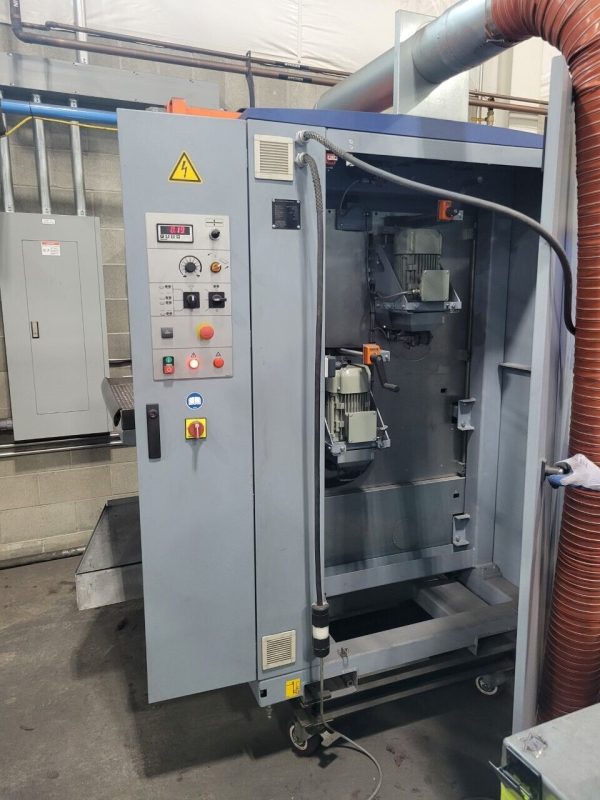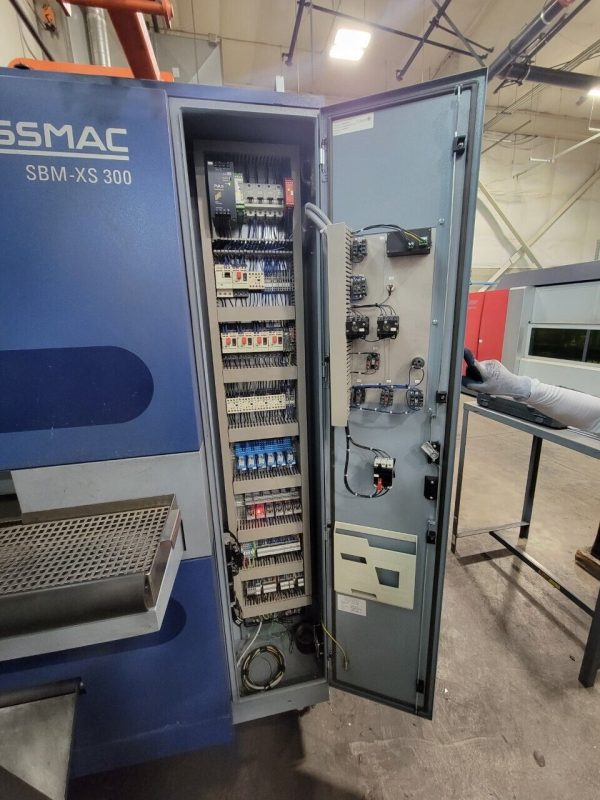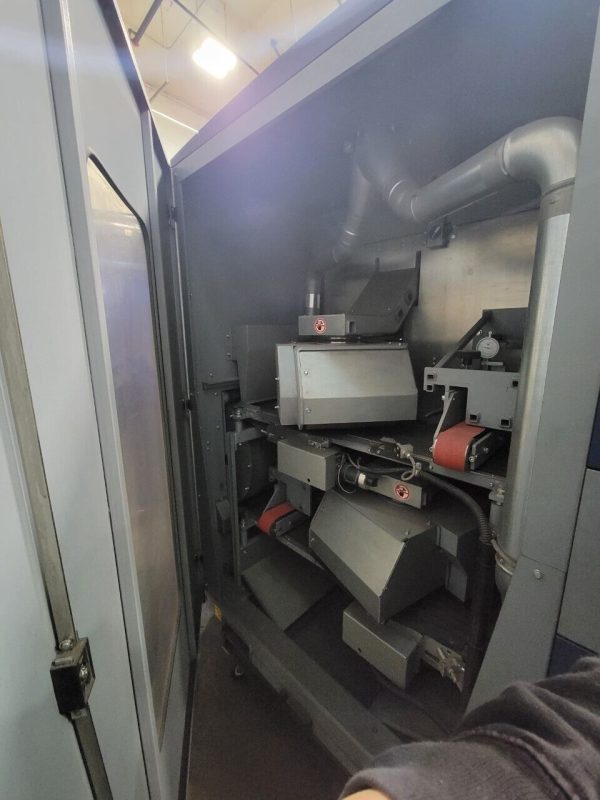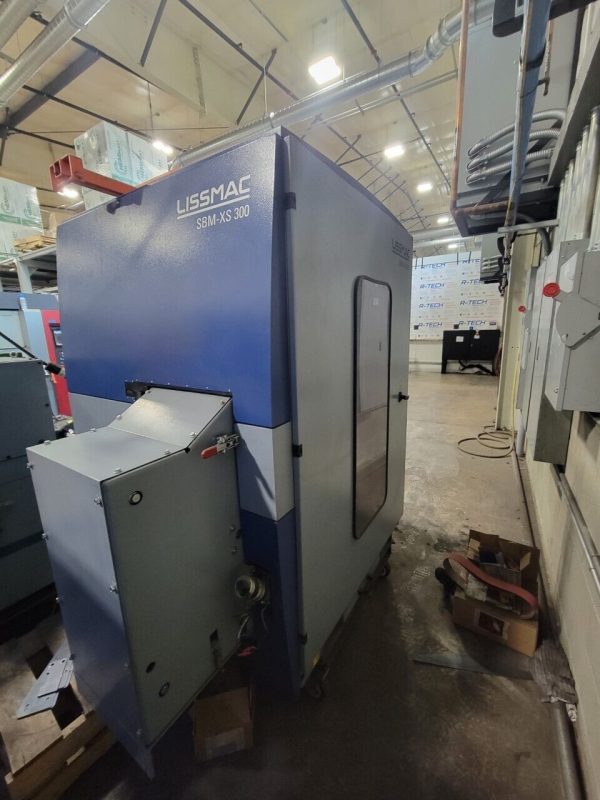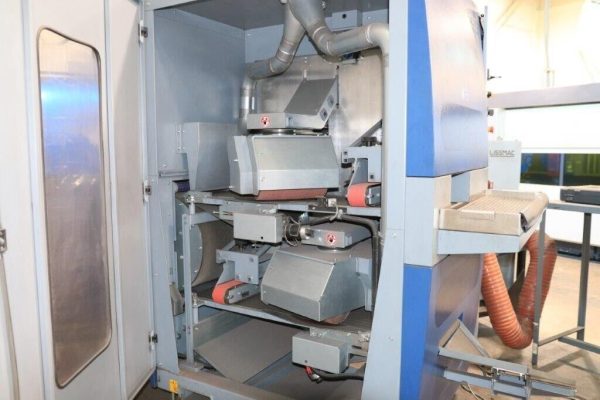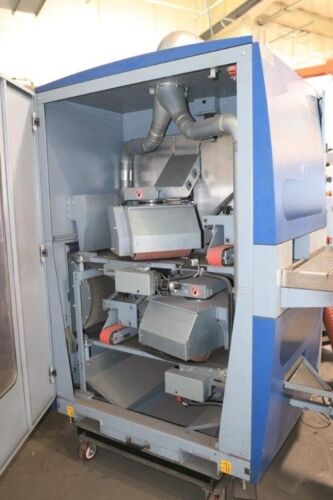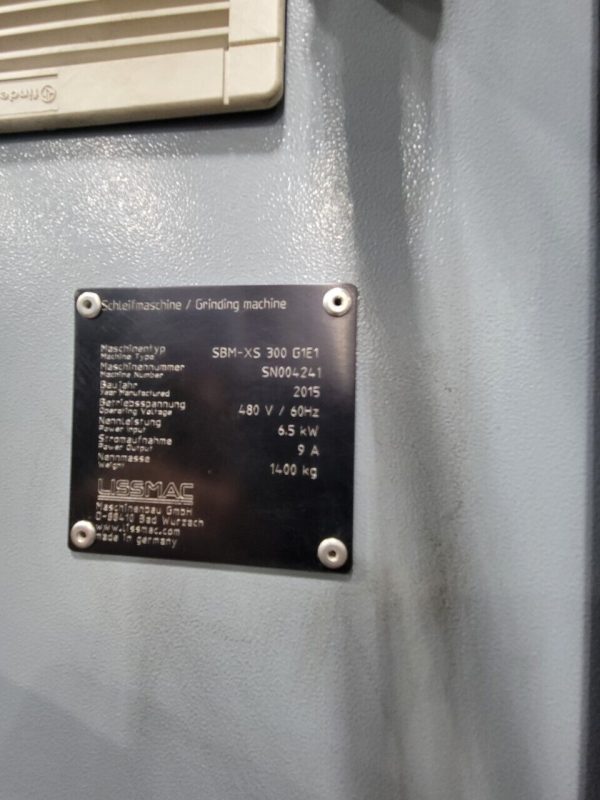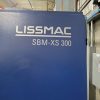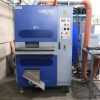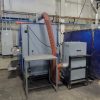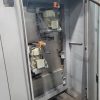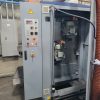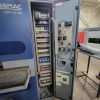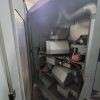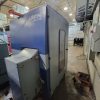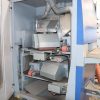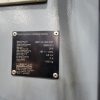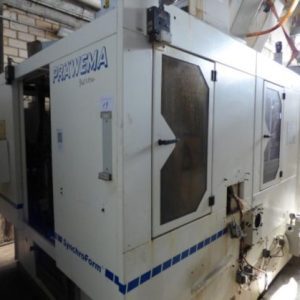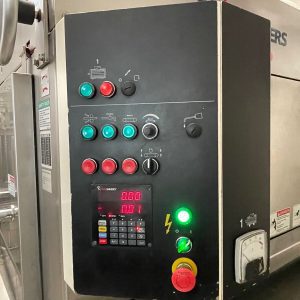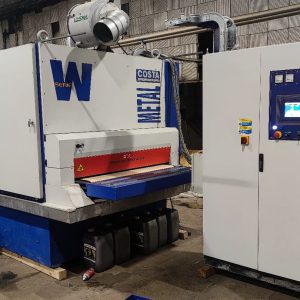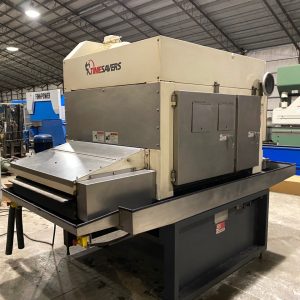Description
Lissmac SBM XS 300 – Year 2015
Deburring Grinding Machine with Dust Collector
SBM-XS 300 G1E1
Working width 300 mm (12 inch)
Workable material thickness 1 – 15 mm (0.04-0.59 inch)
Voltage 400 V, 50 Hz / 480 V, 60 Hz
Network structure 3~ PEN / 3~ PE+N
Total current consumption 13.5 A / 14 A
Total power 7.5 kW / 8.5 kW
Insulation class IP 42
Feed speed 0 – 2 m/min. (0-6.6 ft/min)
Setting part thickness electric
Setting Tools electric
Weight approx. 1400 kg (3086 lbs)
Dimensions (W/L/H)approx. 1300/2300/1900 mm
(51/91/75 inch)
Time consuming turn-over of parts with a second pass is
not necessary
Swinging away of the innovative turning station makes it
possible to deburr parts longer than 200 mm
A higher level of automation ensures an economic and
reliable deburring process, also for large quantities of
parts
A high and sustainable deburring quality.
Dry deburring process (no chemical additives as used in
tumblers)
Small parts are returned to the front of the machine and
gathered in a box. No extra walking back and forth for
the operator.
Energy-efficient
The deburring process ensures an even wear of the belt
and brushes across the entire width of the machine
Fast and simple tool Change
Simple and intuitive operation of the machine
Modern, compact machine design
The SBM-XS G1E1 grinding machine fro is used for effective sheet metal processing. It was designed to process small parts as well as for processing on both sides and for a directionless finish in the field of metal processing. With this machine, LISSMAC is setting new standards with its focus on deburring and, in particular, deburring small parts. The machine also achieves significant time savings through machining on both sides simultaneously.
The deburring machine is suitable for deburring laser parts and rounding edges. Inner and outer contours can be machined in just one operation. When deburring, a cross-sanding belt works on the surface of the material. Burrs and surface splashes that can occur during punching or laser cutting are completely removed. All workpiece edges, on the outside and inside contours, are rounded evenly by two rotating, flexible grinding flap rollers. Secondary burrs are also effectively removed, while galvanized surfaces or protective films are not destroyed.

